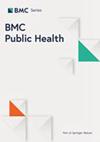摘要
背景:以往对工作残疾人士(WD)进行的研究表明,在 COVID-19 大流行期间,他们在工作参与和健康方面面临负面影响的风险。这些研究主要集中在人们自己对工作困难的描述上,并没有从政策和实践的角度进行研究。本研究旨在从政策和实践的角度探讨从 COVID-19 危机的影响中可以学到什么,以及在危机时期及之后需要采取什么措施来提高 WD 患者的工作参与度:我们采用了多方利益相关者视角的定性方法。在 2021 年 3 月至 2022 年 9 月期间,我们对职业健康专业人员(13 人)、雇主(7 人)和政策制定者(5 人)进行了 25 次半结构式深度在线访谈。受访者被要求分享他们在以下方面的经验:有工作障碍的雇员或求职者如何(重新)获得和维持有偿就业;在科维德-19 危机期间参与工作的障碍和促进因素;以及在危机时期及之后需要采取哪些措施来提高残疾人的工作参与度。采用主题内容分析法对数据进行了分析:结果表明,尽管雇主迅速实施了新的工作安排,但在 COVID-19 危机期间,残疾人在劳动力市场上处于弱势地位,尤其是那些签订了临时合同的人。结果表明,在 COVID-19 危机期间,虽然雇主迅速实施了新的工作安排,但残疾人在劳动力市场上处于弱势地位,尤其是那些签订临时合同的人。工作参与方面的其他障碍包括:封锁期间利益相关者之间的合作受阻,工作场所关闭导致就业机会减少。不过,雇主和职业健康专业人员注意到,一些员工在执行替代性工作任务方面的灵活性和能力令人惊讶。我们还确定了改善残疾人参与工作的方法,包括简化立法和制定可持续的就业政策,投资于职业发展,创建包容性的组织文化,以及增加获取信息和支持援助的途径:在 COVID-19 危机期间,残疾人在劳动力市场上处于弱势地位。在 COVID-19 危机期间,新工作安排的引入变得十分普遍,这对残疾人产生了积极和消极的影响。我们的研究结果表明,要提高残疾人的工作参与度,需要采取多方面的方法,而本研究提出的实际和政策建议可以实现这一目标。Background: Previous studies among people with work disabilities (WD) showed that during the COVID-19 pandemic they were at risk for negative outcomes on work participation and health. These studies focused on people's own accounts of their difficulties to work and did not include the policy and practice perspective. The aim of the present study was to explore the policy and practice perspective on what can be learned from the impact of the COVID-19 crisis, and what is needed to enhance work participation among people with WD, in times of crisis and beyond.
Methods: We used a multi-stakeholder perspective qualitative approach. Between March 2021 and September 2022, twenty-five semi-structured in-depth online interviews were conducted with occupational health professionals (13), employers (7) and policymakers (5). Participants were asked to share their experiences about employees or job seekers with work disabilities on (re)gaining and maintaining paid employment, barriers and facilitators for work participation during the Covid-19 crisis and what is needed to enhance work participation among people with WD in times of crisis and beyond. Data were analysed using thematic content analysis.
Results: The results indicated that, although employers rapidly implemented new working arrangements, people with WD had a vulnerable labour market position during the COVID-19 crisis, especially those with temporary contracts. Job loss and detrimental effects on mental health were identified. Other barriers to work participation included hampered collaboration between stakeholders during lockdowns and fewer job opportunities due to workplace shutdowns. Nevertheless, employers and occupational health professionals noticed that some employees were surprisingly flexible and capable with regard to performing alternative work tasks. We also identified ways to improve work participation for people with WD, including simplifying legislation and establishing sustainable policies on employment, investing in career development, creating an inclusive organizational culture and increasing accessibility to information and support assistance.
Conclusions: People with WD had a vulnerable labour market position during the COVID-19 crisis. The introduction of new working arrangements became widespread during the COVID-19 crisis, which had both positive and negative consequences for people with WD. Our results showed that improving work participation for people with WD requires a multifaceted approach, which can be achieved by the practical and policy recommendations offered by this study.

 求助内容:
求助内容: 应助结果提醒方式:
应助结果提醒方式:


